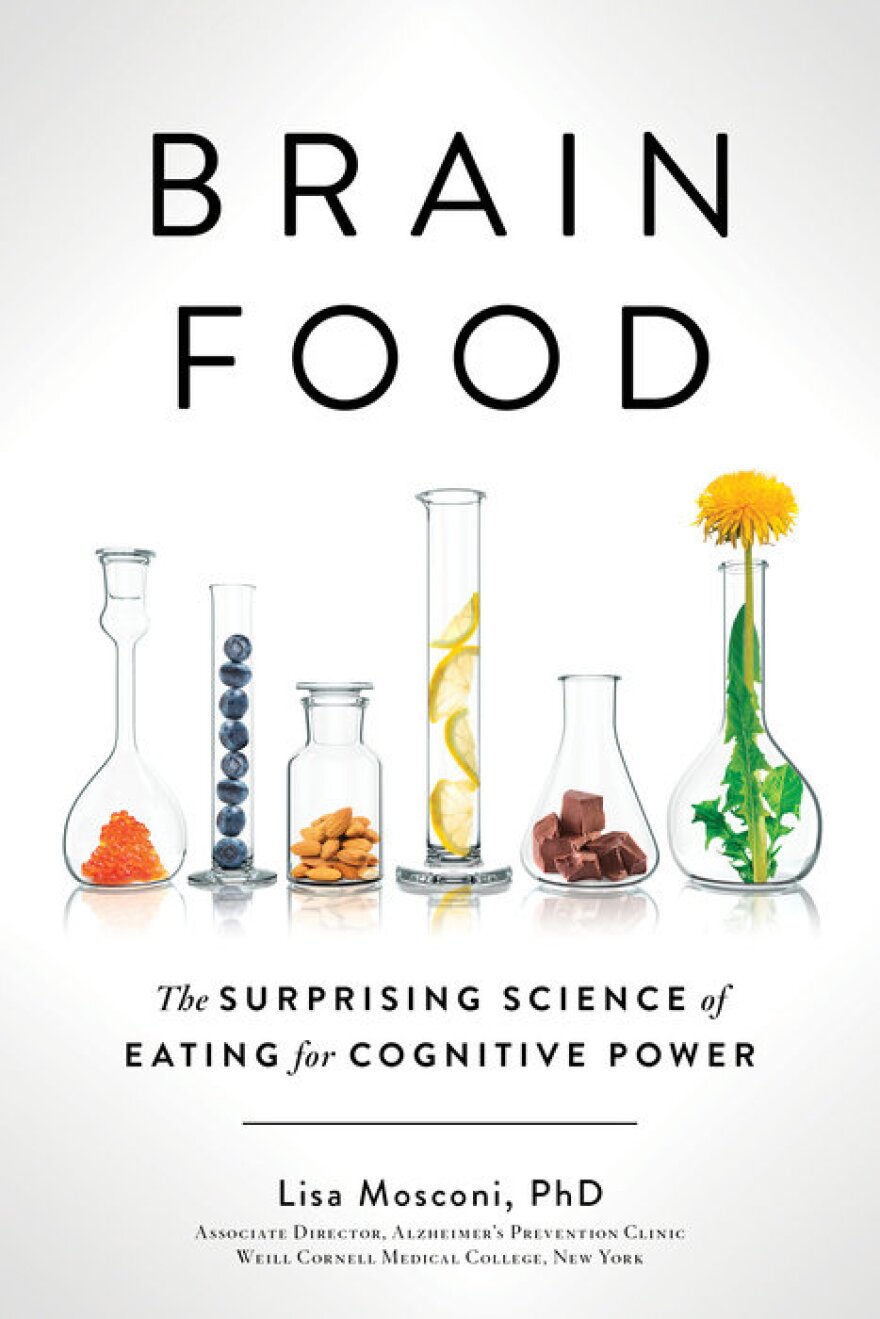Editor's note: This piece was originally published March 12, 2018.
Alzheimer’s and other related forms of dementia are increasingly prevalent in much of Western society, as people live longer. A lot of attention has been paid to how genetics influence our predisposition to Alzheimer’s. But Doctor Lisa Mosconi says there’s one key component of our environment that we are just beginning to connect more strongly to brain health: eating.
"Nowadays there's more of an understanding that your lifestyle really plays a very big role in what happens to you over time ... and that the foods you eat affect the way you think — as well as the way you look," explains Mosconi, who is associate director of the Alzheimer's Prevention Clinic at Weill Cornell Medical College/New York-Presbyterian Hospital.
"But as a society, we tend to focus on the way we look and we're less aware that we feed our bodies and our brains at the same time."

Dr. Mosconi holds Ph.D’s in neuroscience and nuclear medicine and is author of the recent book, Brain Food: The Surprising Science of Eating for Cognitive Power, which marries neuroscience and nutrition and specifies what foods are best for our brains — not just our bodies.
She says there are commonalities among cultures where people live long lives with little cognitive decline.
"There's an approach to food that is very balanced. You eat the fruits of the land, everything is seasonal, people eat in moderation, they start the day with a big breakfast and they have a small lunch and a smaller dinner to facilitate sleep. They're also very physically active and they're socially and intellectually in some ways engaged, but mostly socially."
The book goes into significant detail about the impact on the brain of what we consume, from Omega-6 and Omega-3 fatty acids, to B-vitamins, to water. It also offers a comprehensive examination of your own diet.
Mosconi says the impetus for her work in nutrition came from the evolving curiosity of her neuroscience patients. "Most of the [original] questions would be, 'What's going to happen to me if my mom has Alzheimer's, or my dad has Alzheimer's? Is it in my DNA? Is it my DNA destiny?'
"But after a little while," she says, "the questions that were asked would be more like, 'OK, I understand I'm at risk because my mom had Alzheimer's or my dad had Alzheimer's. So, what should I eat?'. And I was unprepared."

Years later, she says there are still many, many questions in need of answers. "I find that science is not fashion, but we tend to treat it as such. And research takes a long time to evolve, where as diets keep coming and going.
"A few years ago, everyone was vegan, and now everyone is eating fat. Information travels at a speed that makes it so hard to check it. I think we need to have clinical trials that focus on food, so we understand what to eat, how to eat it, when to eat it, how much and how little — and really provide health and doable guidelines for everybody, as a society."





